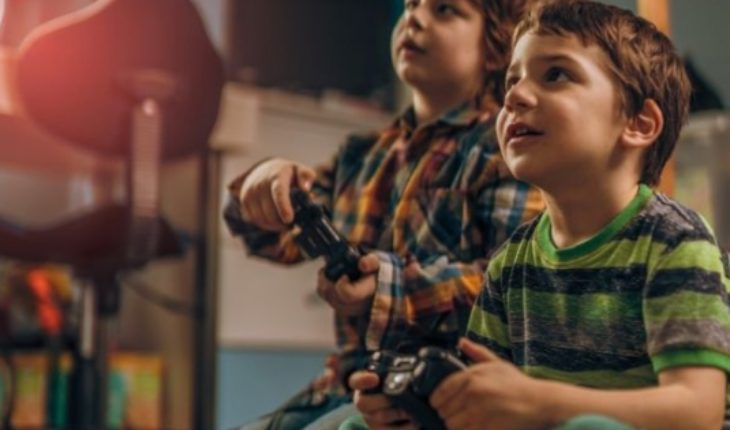Imagine buying your kids an online video game for a few dollars to have fun alone for a while. However, to make the game more fun and exciting they must – and can not be told – buy optional items that can be purchased automatically from the console.
Because your credit or debit card is associated with that account, those purchases can continue until someone notices or your account is empty.
That’s what happened to an unfortunate father whose four children spent the equivalent of $700 in three weeks buying player packs for the FIFA online football video game on the family’s Nintendo Switch console.
In FIFA, you can buy special players that come in bundles, but the contents of those packages are only revealed when the payment is completed.
The children’s father, Thomas Carter, had bought them a single pack of players that cost him $10, but he didn’t realize that the children saw how he had made the payment, a white card to buy more packages and have more fun.
“FIFA 19 goes on sale and my boyfriend disappears”: the video game that tests even the strongest relationship
How video games created a generation that, for the first time, is happy to be unemployed
Pack purchases are made “in-game” as the game unfolds. Although the FIFA video game is published and sold by Electronic Arts, payments were made through the Nintendo family account.
Upon report, Nintendo agreed to refund all the money and withdrew the purchased players from the console. However, the Switch console has been confiscated from the children “indefinitely,” Mr. Carter said.
Thomas Carter of Hampshire, in the south of England, acknowledges that he did not take all due precautions to limit access to his Nintendo Account: he did not use a personal identification number (PIN) and receipts for purchases of players were sent to a old email that had the mailbox full.
“I figured the kids would do that,” he said.
Thomas Carter’s bank statement with purchases on Nintendo.onHe and his wife only realized what had happened when their card was declined because they no longer had funds in the account.
FIFA 19 is a video game that has been approved for players since the age of three.
Carter said his children, all under the age of 10, were very sorry for what had happened and that they had not understood the impact of what they were doing.
He noted, however, that he found that the concept of the game by which packs of players are purchased without knowing the content was immoral.
“You pay $50 for the game, which is already a good amount of money, but then the only way to be able to have a great team is essentially random,” he said in reference to the online game.
“They spent $700 and didn’t even get their favorite player, Lionel Messi.”
Video game addiction: “I spent 7 years playing video games in a robe and not leaving home”
Lionel Messi was the children’s favorite player but was not included in any of the purchases they made. FIFA video game owners EA refused to comment but provided a link that explains the guidelines for how to control purchases made during the game and can be viewed here. This varies depending on the platform or console being used.
How to turn on purchasing controls
Some devices are more complicated than others. Here is a short (more not complete) guide:
On Xbox One: Select the button with the Xbox symbol on the controller. Go to the Systems menu, then follow the setup/account/enter path, security and passkey. Select “Change my passkey”, scroll to the right to “customize” and “request my passkey to make purchases”.
On Nintendo Switch: Log in to your parent or guardian account. Click “Family Group” and select each of the monitored accounts in the family group to which you want to manage restrictions. Select “Restrict purchases in Ntry e-shop” to disable purchases and click “save changes”.
On iPhone or iPad: Turn on “Screen Time” on your device. You will need to create a separate parent or guardian passcode. Then go to Content and Privacy Restrictions and turn on “Content and Privacy”, go to iTunes and App Store Purchases and apply “Do Not Allow”.
On PS4: You must create a separate child account. The monthly purchase limit is automatically set to zero. Sony cautions that it will not refund purchases made from adult accounts.
In 2018, video game information website Eurogamer published an interview with an adult FIFA player who discovered he had spent $10,000 in two years.
He told the site that it was “just not worth it.”
Purchasing packages does not guarantee that they will include your favorite players or players. A new report published by Internet Matters found that 26% of 2,000 parents of children between the ages of 4 and 16 who were surveyed expressed concern about the money their children spent on in-game purchases.
Executive Director Carolyn Bunting explained the importance for parents of remembering to protect their game accounts with passwords or PIN numbers, as well as having frequent conversations with children about what is free and what money costs in a game.
“I’m sure most kids don’t want to find theminute in a situation where they’ve spent their parents’ money on updates or, in this case, on new FIFA players,” he said.
The controversial “loot box”
Last year, Belgium banned the sale of video game “loot boxes”: special characters or rewards that can be purchased or acquired during game hours but whose content cannot be viewed in advance.
This June, EA Vice-President Kerry Hopkins testified before a commission of British mPs that these boxes were “very ethical and fun,” comparing them to the toys that appear on “Kinder Eggs” and other consumer items that contain “surprises” inside.
“We believe that the way we have implemented this type of mechanics – and FIFA is naturally the main one – is really very ethical and very fun, people enjoy it a lot,” he said.
The countries that generate the most money by the video game industry (and which are those in Latin America)
In this regard, the BBC consulted Professor Andrew Przybylski, director of research at the Oxford Internet Institute, which said more information is needed to assess the impact of “booty box”-style purchases.
“Loot boxes and in-app purchases face parents against a new frontier of challenges,” he said.
“While loot boxes look like gambling, we won’t know their effects until these companies start sharing their data with independent scientists.”
However, he concluded, “There is no good evidence that they are gambling, but the simple fact that we do not have firm data should be a cause for concern.”
translated from Spanish: “Our children emptied our bank account by playing FIFA” (and how to prevent that from happening to you)
July 9, 2019 |





